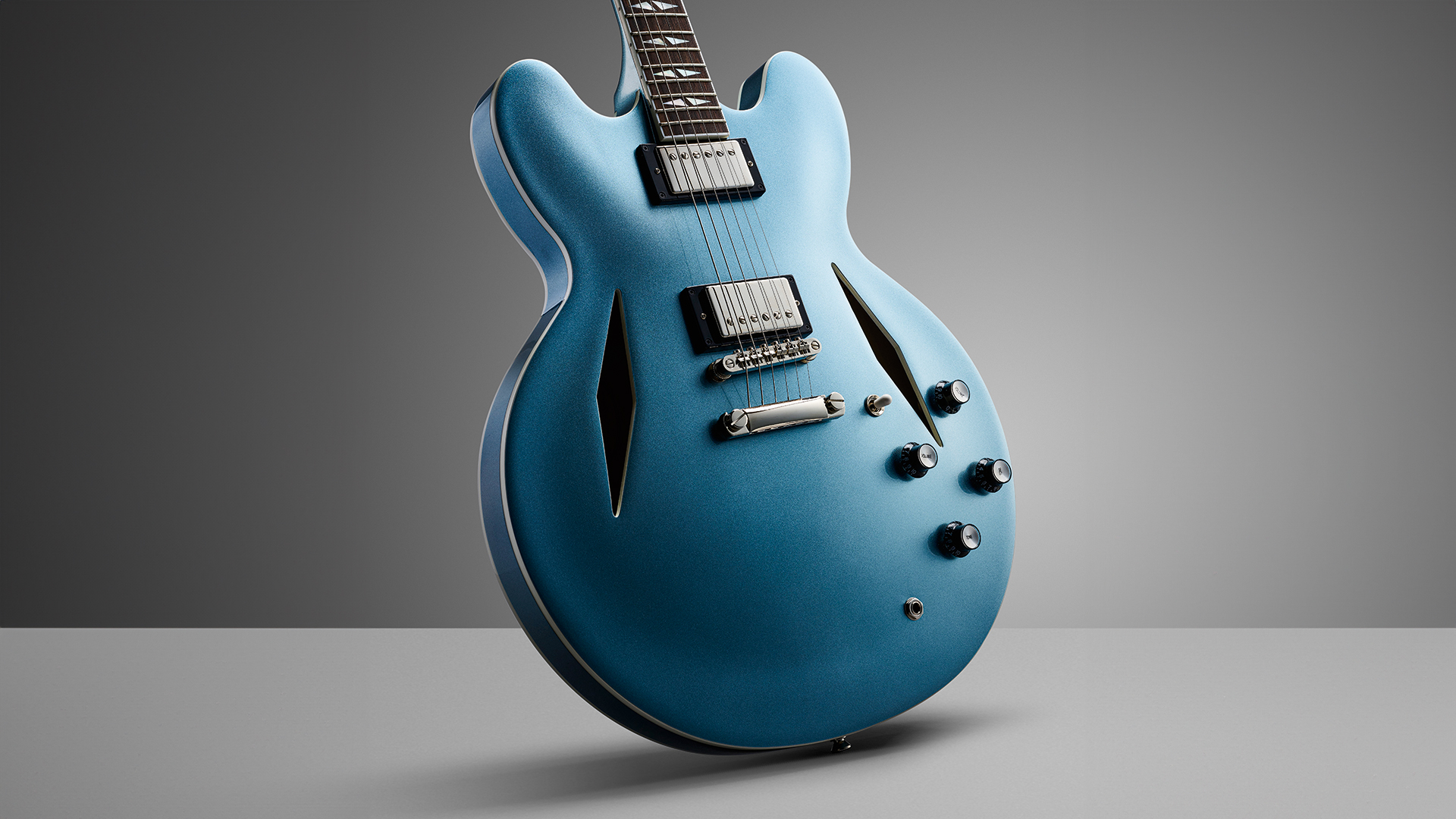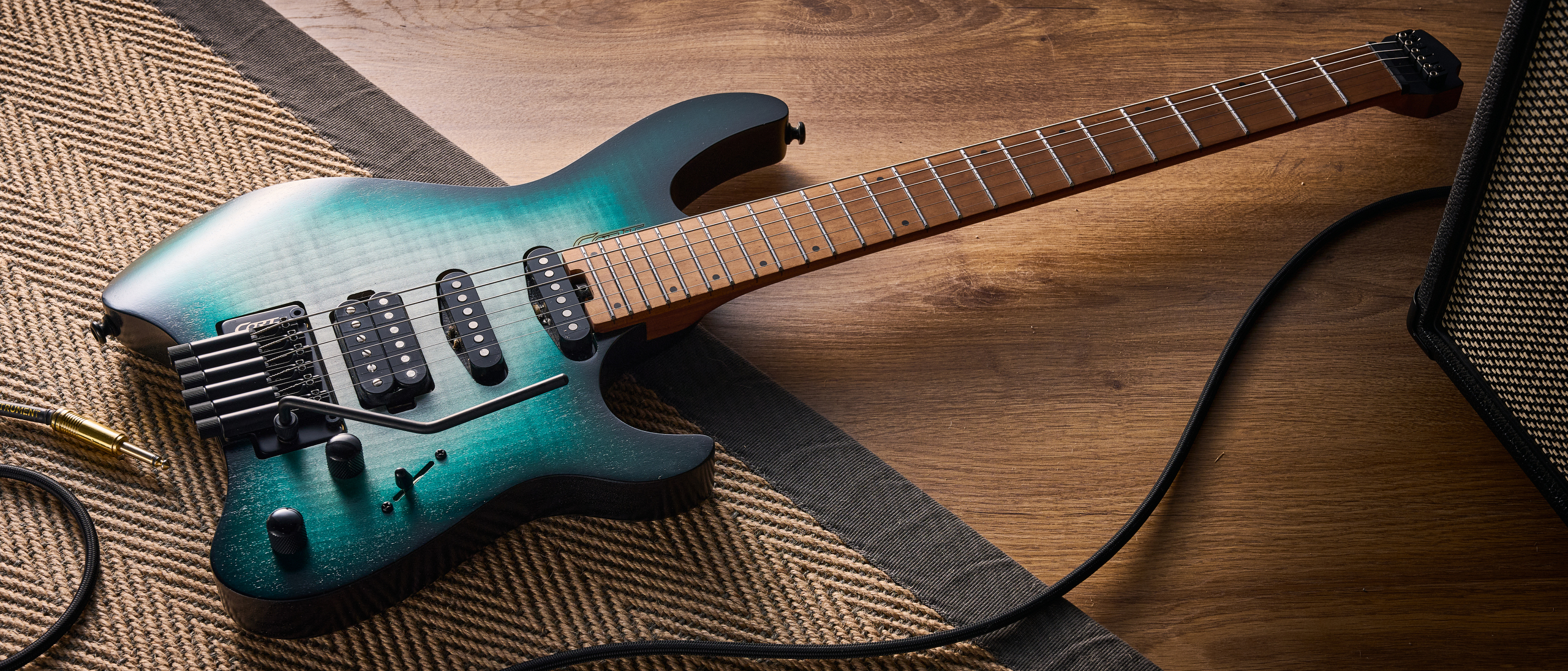Guitar World Verdict
As with every successful signature guitar, you’re wearing your influences around your neck with the DG-335. For fans and tribute bands, it’s the guitar we’ve been waiting for. For everyone else, it’s Dave Grohl’s guitar, and a fine one it is, too.
Pros
- +
Those Gibson USA Burstbucker pickups earn their keep
- +
Faithful spec – including the one-piece mahogany neck
- +
Flawless finish
- +
Elliptical C-shape neck
Cons
- -
Very little.
You can trust Guitar World
Looking for huge savings on guitars and more? Take a look at our Black Friday guitar deals page for all the latest and greatest offers.
Dave Grohl needs very little introduction. From having a hand (or both hands) in changing the course of rock as the drummer in Nirvana to steadily growing Foo Fighters from a collection of self-recorded songs into a stadium-filling band, he’s become the poster boy for all things rock in mainstream culture.
Rewind to 1995, and it’s most likely you’ll see him bouncing between Gibson Les Paul Standards and Customs, Explorers and SGs. Throw in the odd Firebird and RD, and it’s clear that – spare a brief dalliance with an Ampeg Dan Armstrong, the clear-bodied Lucite guitar you can see in the All My Life video – Grohl has almost exclusively favoured Gibson models.
His leanings towards slightly leftfield variations go back to before the conception of Foo Fighters though, thanks to a chance purchase of a 1967 Gibson Trini Lopez model while he was still drumming in Nirvana.
This cherry red guitar would go on to play a massive part in the band’s sound and history, with Grohl using it to track the bulk of his guitar parts on every one of the band’s studio releases.
But as well as that, Grohl used it to inform much of the design of the Pelham Blue Gibson DG-335 signature model that’s been his go-to since 2007.
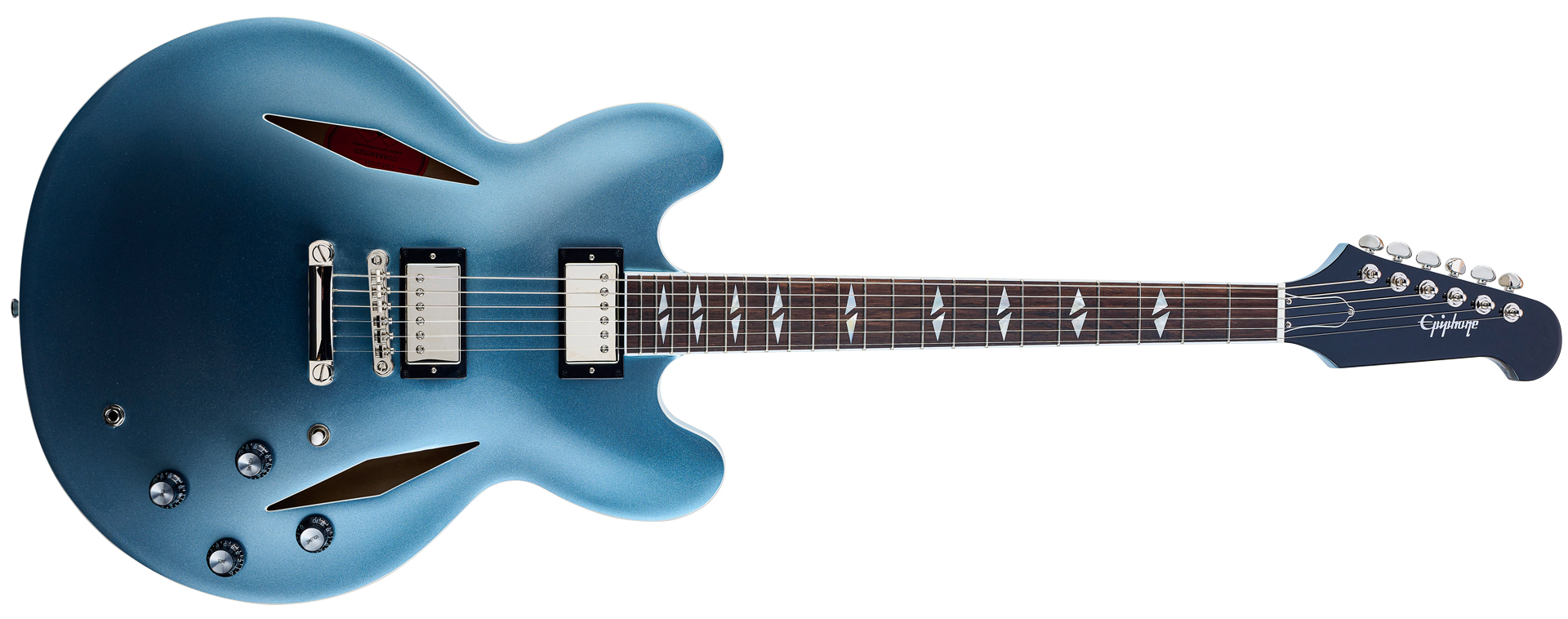
It would’ve been easy to start putting lines through the spreadsheet to save money, but Epiphone has kept it pretty faithful
Originally released as a mega-expensive, Memphis-made guitar, the DG-335 has been issued and reissued a few times since it was first released, with used examples pushing towards £20,000 at times.
All the latest guitar news, interviews, lessons, reviews, deals and more, direct to your inbox!
Well, now it’s been issued as a production model under Gibson’s Epiphone brand, giving real-world Foos fans the opportunity to bag the iconic color and shape without having to sacrifice basic necessities like food and heating.
Spec-wise, it would’ve been easy to start putting lines through the spreadsheet to save money, but Epiphone has kept it pretty faithful. There’s the double-bound, laminated body (maple and poplar rather than the Gibson’s pure maple), one-piece mahogany neck, and a laurel – rather than rosewood – fingerboard.
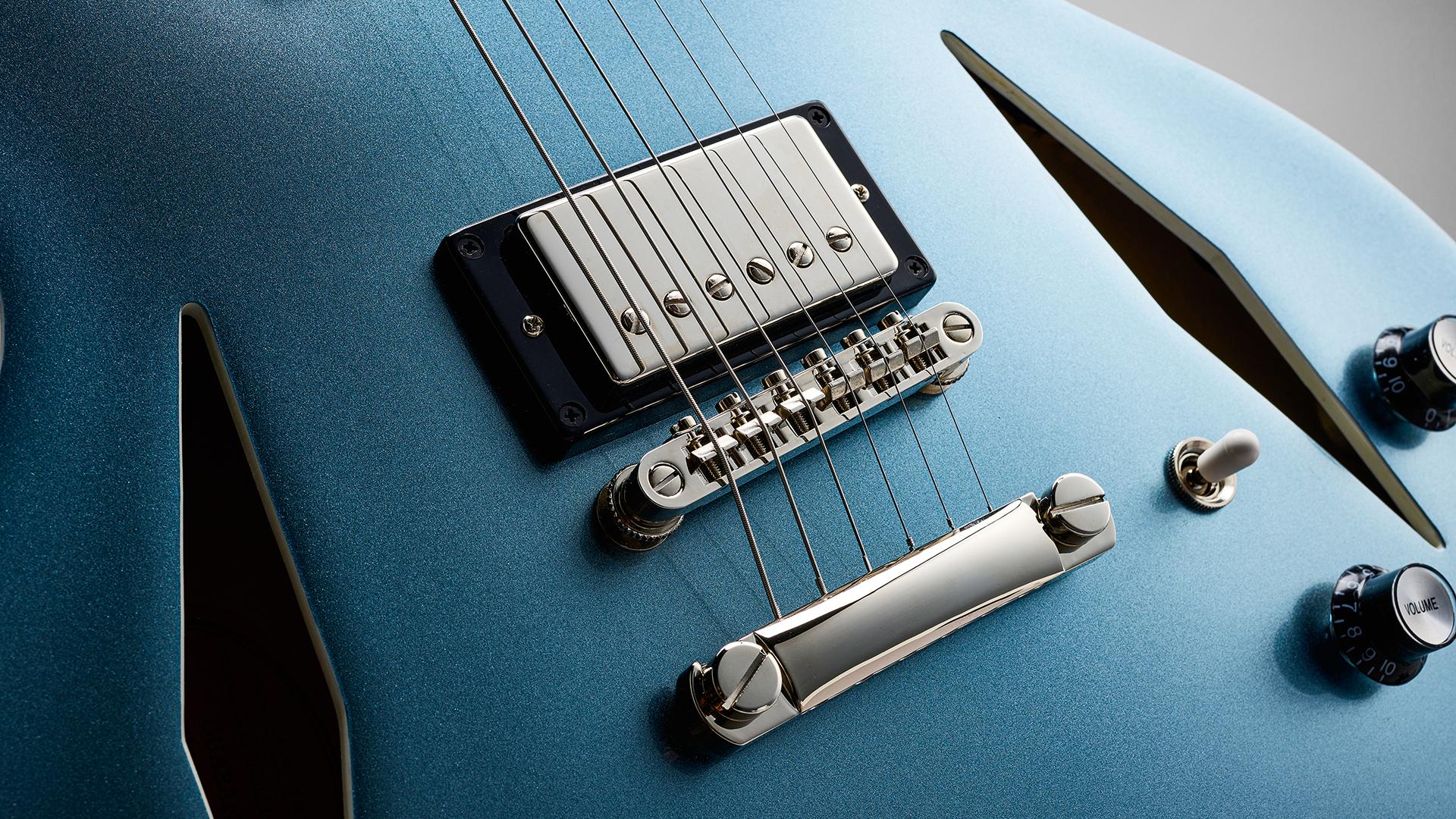
The elusive Trini Lopez features adopted by Grohl are all present
The elusive Trini Lopez features adopted by Grohl are all present, too: diamond-shaped F-holes, split-diamond inlays and the Firebird-style six-in-line headstock all combine with the Pelham Blue paint job to complete the picture.
But one of the biggest features is bubbling at the surface: the DG is packing Gibson USA pickups. In the neck position, we get a Burstbucker 2, and the bridge humbucker is a Burstbucker 3 – the same pairing found in the USA version.
To the back of the headstock sits Grohl’s signature, and the guitar comes in a sturdy hardcase, which, while devoid of any candy, does include a larger version of the same John Hancock on the outside.
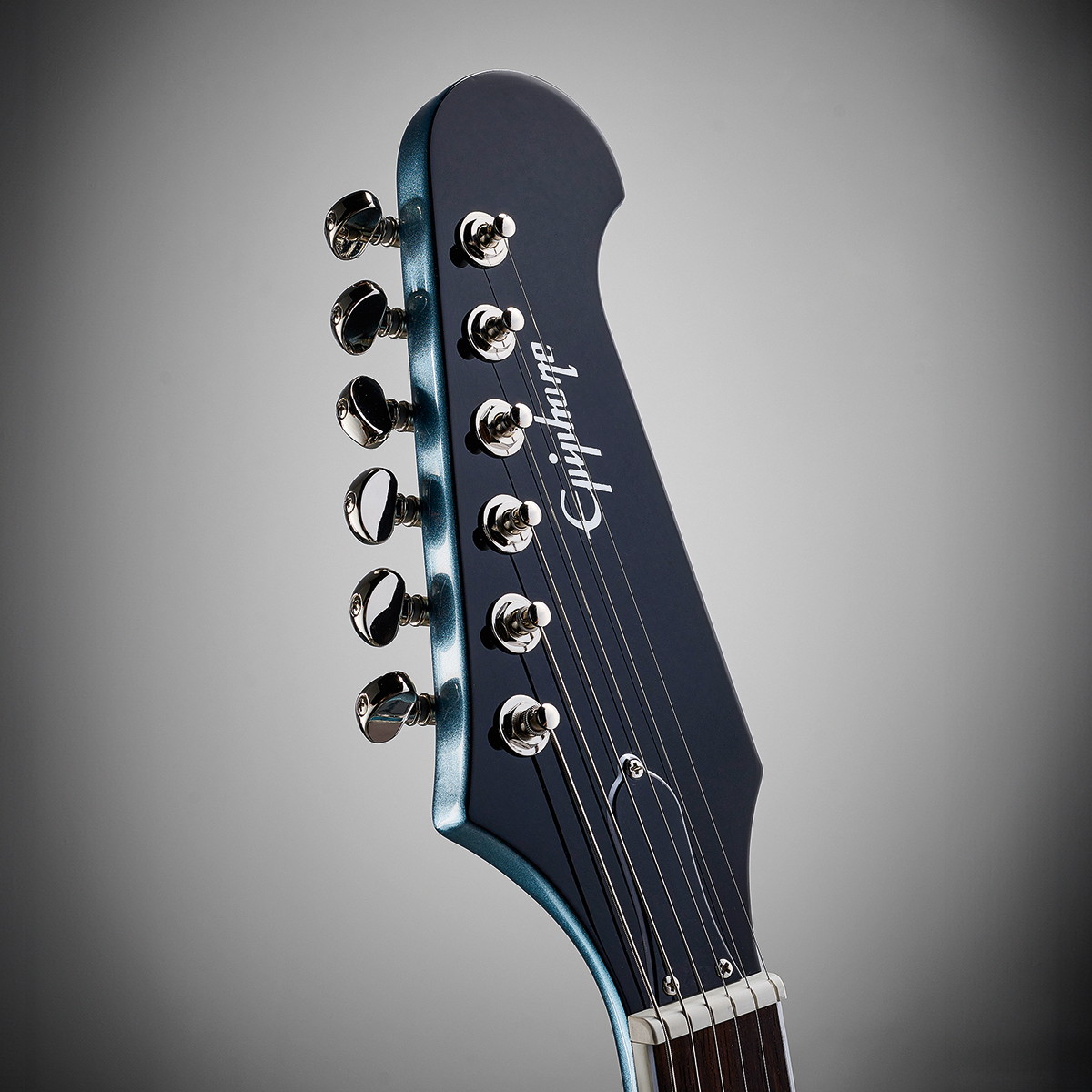
Straight out of the box, the DG-335 cuts a familiar figure – the hue of the finish is spot on, and delivered flawlessly to boot. Acoustically, it’s fairly vibrant and lively, which we think bodes well before plugging in.
The neck shape is also a little different to the norm, another ‘win’ in our book, rather than opting for an off-the-peg profile. Epiphone calls it an Elliptical C-shape, and it’s quite different to the common SlimTaper profile – it’s rounded, wider, chunkier and more of a palm-filler that strikes a great balance for chord and rhythm playing at the lower frets, while giving us a great anchor for string bends and lead playing.
The tone is where the heart is – and those USA pickups earn their spot
The tone is where the heart is, though, and those USA pickups earn their spot. Many of Grohl’s tones come from a combination of Vox AC30 or Fender-style cleans, combined with Marshall and Mesa/Boogie for the dirt.
Yes, we’re talking relatively meat and potatoes for a lot of Foo Fighters sounds, but as we all know, getting the simple things right can present as much of a challenge as more complex sounds.
Not here though, because with our modeler dialled in, we were able to quickly replicate some typical Grohl sounds using very little processing beyond amps, overdrive and delay.
But, it goes beyond Foo Fighters. This is essentially a rock-friendly ES-335, and it’s got the firepower to cover everything from blues to indie to classic rock tones with ease.
Specs
- PRICE: $1,299 / £1,249
- BODY: Laminated maple/poplar, with maple centre-block
- NECK: Mahogany
- SCALE: 24.75-inches
- FINGERBOARD: Indian laurel
- FRETS: 22
- PICKUPS: Gibson USA Burstbucker 2 (neck) and 3 (bridge)
- CONTROLS: Volume x2, tone x2, three-way selector switch
- HARDWARE: Epiphone lockTone T-o-M bridge and tailpiece, Grover Mini-Rotomatic tuners, nickel
- FINISH: Pelham Blue
- CONTACT: Epiphone

Stuart has been working for guitar publications since 2008, beginning his career as Reviews Editor for Total Guitar before becoming Editor for six years. During this time, he and the team brought the magazine into the modern age with digital editions, a Youtube channel and the Apple chart-bothering Total Guitar Podcast. Stuart has also served as a freelance writer for Guitar World, Guitarist and MusicRadar reviewing hundreds of products spanning everything from acoustic guitars to valve amps, modelers and plugins. When not spouting his opinions on the best new gear, Stuart has been reminded on many occasions that the 'never meet your heroes' rule is entirely wrong, clocking-up interviews with the likes of Eddie Van Halen, Foo Fighters, Green Day and many, many more. If he's not playing the guitar, you'll likely find Stuart behind the kit playing Valerie to newlyweds.
